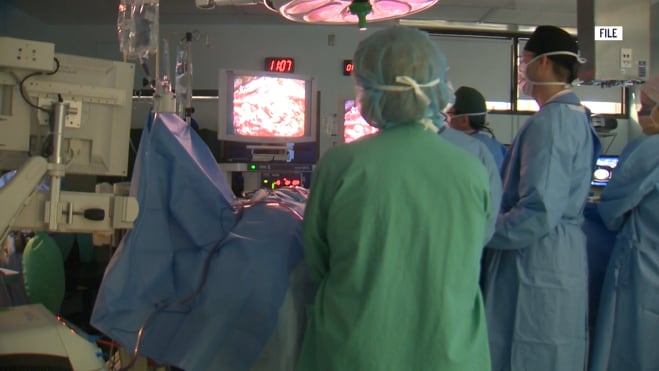BURLINGTON, Vt. (WCAX) – Dozens of Vermonters wait years for kidneys, a process that’s only gotten lengthier. According to the University of Vermont Medical Center, patients on average wait at least two to three years to get a kidney transplant, and in some instances, up to seven years.
Brandi Jagemann of Montpelier reflects on her health journey over 20 years with a grateful mindset and a bit of a chuckle. You wouldn’t be able to tell, but Jagemann beat leukemia and has undergone both a bone marrow transplant and a heart transplant.
“I’m the luckiest unlucky person you’ve ever met,” said Jagemann, “I have definitely been carried by angels is all I can think about. You know, I’ve been carried by different communities, my family, my friends, and no matter what you believe in, you know, the universal thoughts of positivity and prayers.”
She says she’s been on anti-rejection medication from both of her transplants in 2008 and 2016. She works full time, goes to Jazzercise, and raises her two young adult children. But recently, her kidney began to feel side effects from medication, and medical efforts to help weren’t improving the symptoms. The Dartmouth-Hitchcock Medical Center helped her get on peritoneal dialysis 10 hours a day. Meanwhile, she’s on the list for a kidney transplant.
“Here we go with the kidney, but I just don’t know how or why. But I just maintain, you know, the hopefulness that like, a heart is difficult. So the kidney I’m hoping is just going to be easier, and I’m confident it’s going to happen. And then we’ll just kind of kind of go from there,” she said.
In the UVM Health Network, officials tell us 78 patients are waiting for a kidney. Doctors say the allocation process changed for kidneys, as the UVMHN previously only competed for organs with Albany. Now, the jurisdiction is much larger.
“We compete with Boston, with New York, with Philadelphia, Pennsylvania. That is one of the places that has the biggest center in the country,” said Dr. Jaime Pineda of the UVM Medical Center. “That means that hit us in a way to decrease our kidney transplant numbers. Last year, almost in half.”
UVM says they had 27 deceased organ donors last year, but viable organs don’t necessarily get prioritized in states with a much larger pool of candidates, increasing the wait time to up to seven years.
That’s why doctors are encouraging living donors. They say living donations are better for patient outcomes and have less risk associated with transporting a deceased donor’s kidney from elsewhere.
“It’s thoroughly and strictly investigated, examined for them to be approved. And then similarly the recipient goes through a thorough process. So both of them and then it’s an elective surgery on an elective day. Both good for the patients but also for the team,” said Dr. Marios Prikis of the UVM Medical Center.
At UVM, the doctors say 30% of their kidney transplants are from living donors, but the goal would be well over 50% because a living donor can take years off the wait.
“Our living donors are increasing, but we have a population that probably will be very eager to donate more. And we need many more living donors in our area,” Pineda said.
As that list continues among many states in the New England area, patients like Jagemann continue to wait patiently and search for their own living donors.
“I’m just hoping that you know my script continues to show adequacy and I can I can maintain what it looks like for now,” said Jagemann.
UVM says they have three scheduled living kidney surgeries this month. They encourage people to consider becoming living kidney donors.

